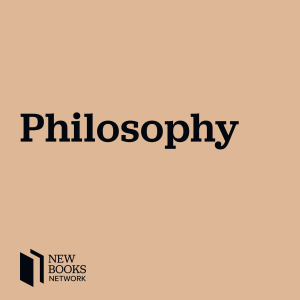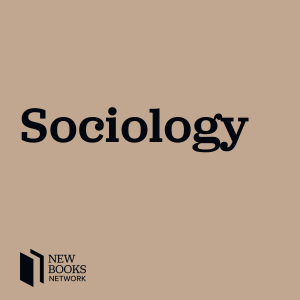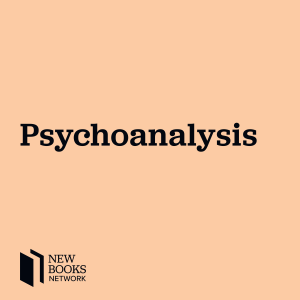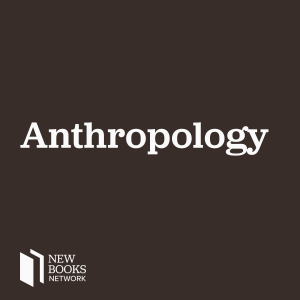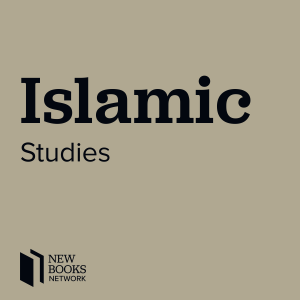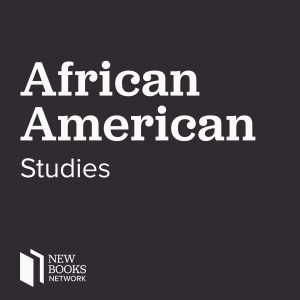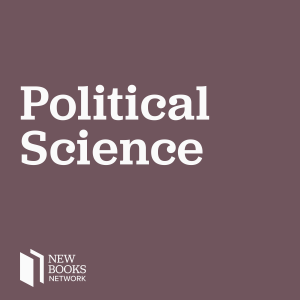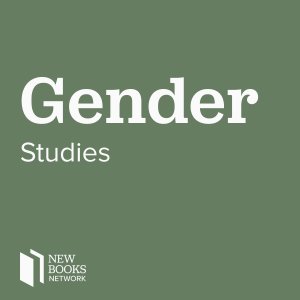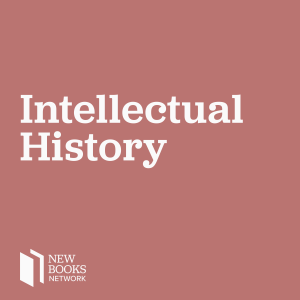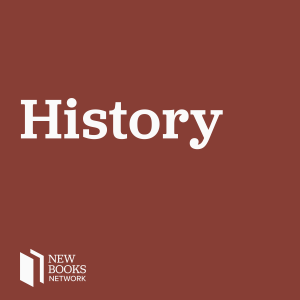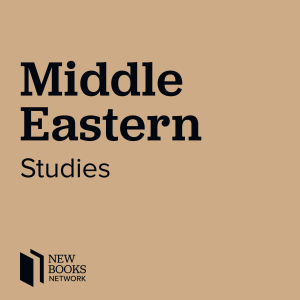

New Books in Middle Eastern Studies
https://feeds.megaphone.fm/LIT1877366845Episode List

Leila Hudson, "Lines of Flight, Assemblages of Home: Syrian Women Displaced" (Syracuse UP, 2025)
While humanitarian organizations and media outlets often reduce Syrian refugees to statistics or brief anecdotes, the real story of displacement unfolds in the intimate spaces of family life. Through the interwoven narratives of five middle-aged sisters from Damascus, Lines of Flight, Assemblages of Home reveals how Syrian women navigate war, exile, and the profound transformation of their families and identities. Drawing on extensive interviews conducted between 2015 and 2017, this book follows an extended Sunni Muslim family as they flee their homes in Damascus’s Eastern Ghouta suburbs and scatter across Lebanon, Jordan, Turkey, Egypt, and eventually Europe. As these women move through an increasingly hostile landscape of border controls, refugee camps, and human trafficking networks, they must reinvent themselves—from stable middle-class mothers to resourceful survivors, from guardians of tradition to architects of change. Their journeys challenge conventional assumptions about refugee experiences, revealing how displacement reconfigures family networks, religious practices, and gender roles. Leila Hudson’s intimate portrait of Syrian displacement offers vital insights for researchers and practitioners working in humanitarian assistance, refugee resettlement, and forced migration. It provides essential reading for anyone seeking to understand how ordinary families navigate extraordinary circumstances, and how women in particular bear both the burdens and opportunities of displacement. Roberto Mazza is currently a visiting scholar at the Buffett Institute for Global Affairs at Northwestern University. He is the host of the Jerusalem Unplugged Podcast and to discuss and propose a book for interview can be reached at robbymazza@gmail.com. Blusky and IG: @robbyref Learn more about your ad choices. Visit megaphone.fm/adchoicesSupport our show by becoming a premium member! https://newbooksnetwork.supportingcast.fm/middle-eastern-studies

Daniel K. Falk and Rodney A. Werline, "Prayer in the Ancient World Vol.1" (Brill, 2027)
Prayer in the Ancient World is the resource on prayer in the ancient Near East and Mediterranean. With over 350 entries it showcases a robust selection of the range of different types of prayers attested from Mesopotamia, Egypt, Anatolia, the Levant, early Judaism and Christianity, Greece, Rome, Arabia, and Iran, enhanced by critical commentary.The Prayer in the Ancient World will also be available online.Preview of the 'Prayer in the Ancient World’ Daniel K. Falk is Professor of Classics and Ancient Mediterranean Studies and Chaiken Family Chair in Jewish Studies at Penn State University. Caleb Zakarin is editor of the New Books Network. Learn more about your ad choices. Visit megaphone.fm/adchoicesSupport our show by becoming a premium member! https://newbooksnetwork.supportingcast.fm/middle-eastern-studies

John Tolan, "Islam: A New History from Muhammad to the Present" (Princeton UP, 2025)
A concise new narrative history of Islam that draws on the transformative insights of recent research to emphasize the diversity and dynamism of the tradition. Today’s Muslim world has been experiencing upheaval: legalists and mystics engage in intense debates, radical groups invoke Sharia, Muslim immigrants in the West face prejudice and discrimination, and Muslim feminists advocate new interpretations of the Koran. At the same time, Islam is mischaracterized as unitary and unchanging by people ranging from right-wing Western politicians claiming that Islam is incompatible with democracy to conservative Muslims dreaming of returning to the golden age of the prophet. Against this contentious backdrop, this book provides a timely new history of the religion in all its astonishing richness and diversity as it has been practiced by Muslims around the world, from seventh-century Mecca to today. Most popular histories of Islam continue to repeat conventional pietistic accounts. In contrast, John Tolan draws on decades of new historical research that has transformed knowledge of the origins and development of the Muslim faith. He shows how the youngest of the three great monotheisms arose in close contact with Jewish, Christian, and other religious traditions in a mixture of cultures, including Arab, Greek, Persian, and Turkish; how Islam spread across an enormous territory encompassing hundreds of languages and cultures; how Muslims have forged widely different beliefs and practices over fourteen centuries; and how Islamic history provides crucial context for understanding contemporary debates in the Muslim world. At a time when much talk about Islam is filled with misunderstanding, stereotypes, and bias, this book provides a fresh and lucid portrait of the continuous and ongoing transformations of a religion of tremendous variety and complexity. Learn more about your ad choices. Visit megaphone.fm/adchoicesSupport our show by becoming a premium member! https://newbooksnetwork.supportingcast.fm/middle-eastern-studies

Ayoush Lazikani, "The Medieval Moon: A History of Haunting and Blessing" (Yale UP, 2025)
When they gazed at the moon, medieval people around the globe saw an object that was at once powerful and fragile, distant and intimate—and sometimes all this at once. The moon could convey love, beauty, and gentleness; but it could also be about pain, hatred, and violence. In its circularity the moon was associated with fullness and fertility. Yet in its crescent and other shifting forms, the moon could seem broken, even wounded. In this beautifully illustrated history The Medieval Moon: A History of Haunting and Blessing (Yale UP, 2025), Ayoush Lazikani reveals the many ways medieval people felt and wrote about the moon. Ranging across the world, from China to South America, Korea to Wales, Lazikani explores how different cultures interacted with the moon. From the idea that the Black Death was caused by a lunar eclipse to the wealth of Persian love poetry inspired by the moon’s beauty, this is a truly global account of our closest celestial neighbour. Ayoush Lazikani is a lecturer at the University of Oxford. A specialist in medieval literature, she is the author of Cultivating the Heart and Emotion in Christian and Islamic Contemplative Texts, 1100–1250, and an associate editor for the Palgrave Encyclopedia of Medieval Women’s Writing in the Global Middle Ages. Morteza Hajizadeh is a Ph.D. graduate in English from the University of Auckland in New Zealand. His research interests are Cultural Studies; Critical Theory; Environmental History; Medieval (Intellectual) History; Gothic Studies; 18th and 19th Century British Literature. YouTube Channel: here Learn more about your ad choices. Visit megaphone.fm/adchoicesSupport our show by becoming a premium member! https://newbooksnetwork.supportingcast.fm/middle-eastern-studies

Ali Anooshahr, "Slavery in the Early Mughal World: The Life and Thoughts of Jawhar Aftabachi (1520s–1580s)" (Oxford UP, 2025)
Jawhar Aftabachi was enslaved as a child by the Ottomans in the Black Sea region in the early sixteenth century. He was then sold to the Ottoman admiral Selman Reis, who took him with his fleet to Egypt and Yemen during his wars with the Portuguese; carried, after the admiral's death, by the admiral's nephew Mustafa Bayram to Gujarat on the western coast of India; and finally, when the Mughal army invaded Gujarat in 1534, taken into imperial service along with thousands of Eurasian and Abyssinian slaves. Here he rose to the position of water-carrier for the Mughal Emperor Humayun and chronicled this experience in a remarkable , Persian text called Tazkirah-i Vaqi`at or “memoir of events”. In Slavery in the Early Mughal World: The Life and Thoughts of Jawhar Aftabachi (1520s–1580s) (Oxford UP, 2025), Ali Anooshahr uses Jawhar's life and memoirs as a unique window into slavery, selfhood, and the rise of the early modern Indian Ocean world. Bringing a micro-historical study to a "subaltern Mughal author" offers the opportunity to reassess the history of slavery in South Asia from an original perspective and to reframe the connected history of the early modern world. Jawhar's life shows in vivid detail the eruption of the Mediterranean and Black Sea cultural regions into the Indian Ocean world, shedding light onto the collapse of older bonds of interdependency in the face of impersonal structures of new centralized states, and bearing witness to the process of individualization of people which was experienced not as a triumphalist "rise of the self" but as alienation. Ali Anooshahr is a historian of Mughal India as well as the "Persianate World" during the early modern era. He received his B.A. from the University of Texas at Austin in 1998, and his M.A. (2002) and Ph.D. (2005) from UCLA. He is a Professor of History at the University of California, Davis. His books include The Ghazi Sultans and the Frontiers of Islam: A Comparative Study of the Late Medieval and Early Modern Periods (Routledge, 2009), Turkestan and the Rise of Eurasian Empires: A Study of Politics and Invented Traditions (Oxford, 2018), and (edited with Ebba Koch) The Mughal Empire from Jahangir to Shah Jahan: Art, Architecture, Politics, Law and Literature (The Marg Foundation, March 2019). His research has been supported by fellowships from the Guggenheim Foundation, the Mellon Foundation, and the Hellman Foundations, among others. Morteza Hajizadeh is a Ph.D. graduate in English from the University of Auckland in New Zealand. His research interests are Cultural Studies; Critical Theory; Environmental History; Medieval (Intellectual) History; Gothic Studies; 18th and 19th Century British Literature. YouTube Channel: here Learn more about your ad choices. Visit megaphone.fm/adchoicesSupport our show by becoming a premium member! https://newbooksnetwork.supportingcast.fm/middle-eastern-studies
Create Your Podcast In Minutes
- Full-featured podcast site
- Unlimited storage and bandwidth
- Comprehensive podcast stats
- Distribute to Apple Podcasts, Spotify, and more
- Make money with your podcast
